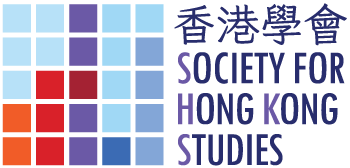- Seminars
- Seminars 2021
Global hong Kong Series: Lessons from Myanmar
As Hong Kong experiences unprecedented political and social upheavals, we invite speakers who can shed light on other societies which have faced similar challenges. Putting Hong Kong in global perspectives may inspire comparative research, theoretical and historical reflections, as well as public discussions on our collective future.
Coup and Protests in Myanmar
Speakers: Dr. Renaud Egreteau (Associate Professor of City University), Dr. Muang Zarni (Fellow of the Genocide Documentation Center), Dr. Debby Chan (Visiting Fellow of City University)
Date: 24th May 2021 (Mon) 17:00 (HK), 10:00 (BST)
Format: Zoom
Language: English
Please register HERE to secure your place
Co-organisers: Society for Hong Kong Studies & Global China Center, The Hong Kong University of Science and Technology
Abstract:
This talk will cover two subjects of the current crisis in Myanmar, its domestic and international implications. In particular, three questions are asked and answered.
- Myanmar coup: seizing power, losing control? (by Dr. Renaud Egreteau)
The Myanmar armed forces have seized control of government for the fourth time since independence. However, the coup d’état triggered mass protests across the country and a powerful civil disobedience movement has emerged. How to make sense of this military takeover and the popular, highly organised popular resistance it has sparked? Why now and to what ends? What does it mean for the constitutional and political process at work since the disbanding of the previous military regime? The talk will conclude on the prospects for (another) return to civilian rule and elected form of government in Myanmar.
- The Greatest Casualty of Myanmar’s Coup is the Tatmadaw as the National Armed Forces (by Dr. Muang Zarni)
The greatest casualty of Myanmar’s coup is the death of the Tatmadaw in the hearts and minds of the overwhelming majority of Myanmar’s ethnically diverse society at large, both the majoritarian Burmese Buddhists and the national minority.
Although the Tatmadaw has long been viewed – quite rightly – as an ethnically alien and ruthless occupier by the country’s ethnic minorities – most of whom have taken up arm against the military-controlled state over the last 70-years, it was only in the last 3-months solely characterized by the coup regime’s terroristic violence did the glue of ethno-patriotism as the common bond between the ethnic majoritarian Bama society and the most powerful national armed come out, suddenly and irreversibly.
Unprecedented emergence of the society-wide against the existence – not just the coup regime of Min Aung Hlaing – of the Tatmadaw is the single most important development which will have the most far-reaching consequences for the country as a whole.
- Can China be Myanmar’s good neighbour by upholding its non-interference principle? (by Dr. Debby Chan)
On 1 February 2021, the military coup ended a decade of democratic transition in Myanmar (Burma). Anti-coup protesters in the country have been calling the international community, including China, to act. They even demand the United Nations (UN) to invoke the principle of Responsibility to Protect (R2P) to end the military dictatorship. China has not joined the western democracies to condemn the coup in Myanmar. Reiterating that it is a good neighbour to Myanmar, China has urged all parties to exercise restrain to maintain stability in the country. With the escalation of violence in Myanmar, will China, one of the UN Security Council permeant members, relax its principle of non-interference and give way to R2P for the protection of civilians?
About the speaker:
Dr. Renaud Egreteau is Associate Professor at the Department of Asian and International Studies, City University of Hong Kong. He works across the areas of Comparative and International Politics as well as South and Southeast Asian Studies. His most recent research focuses on the dynamics of political change in Myanmar, particularly the resurgence of parliamentary affairs and the evolving policy role of the armed forces in the country’s “post-junta” context.
Dr. Debby Chan is a visiting fellow in the Department of Public Policy, City University of Hong Kong. Her research concerns societal actors’ receptiveness to Belt and Road projects in Southeast Asia.
Dr. Maung Zarni is a UK-based fellow of the (Genocide) Documentation Center – Cambodia, co-founder of FORSEA.co, a Southeast Asian activist organization, and Burmese coordinator of the Free Rohingya Coalition, with 30-years of engagement in activism, scholarship, politics and media.
- Date & Time
- 24 MAY 2021 17:00 HKT
- Location
- Online
- Language
- English
